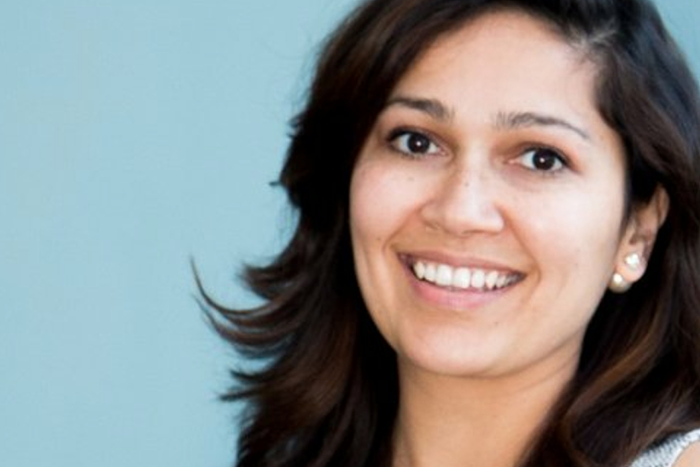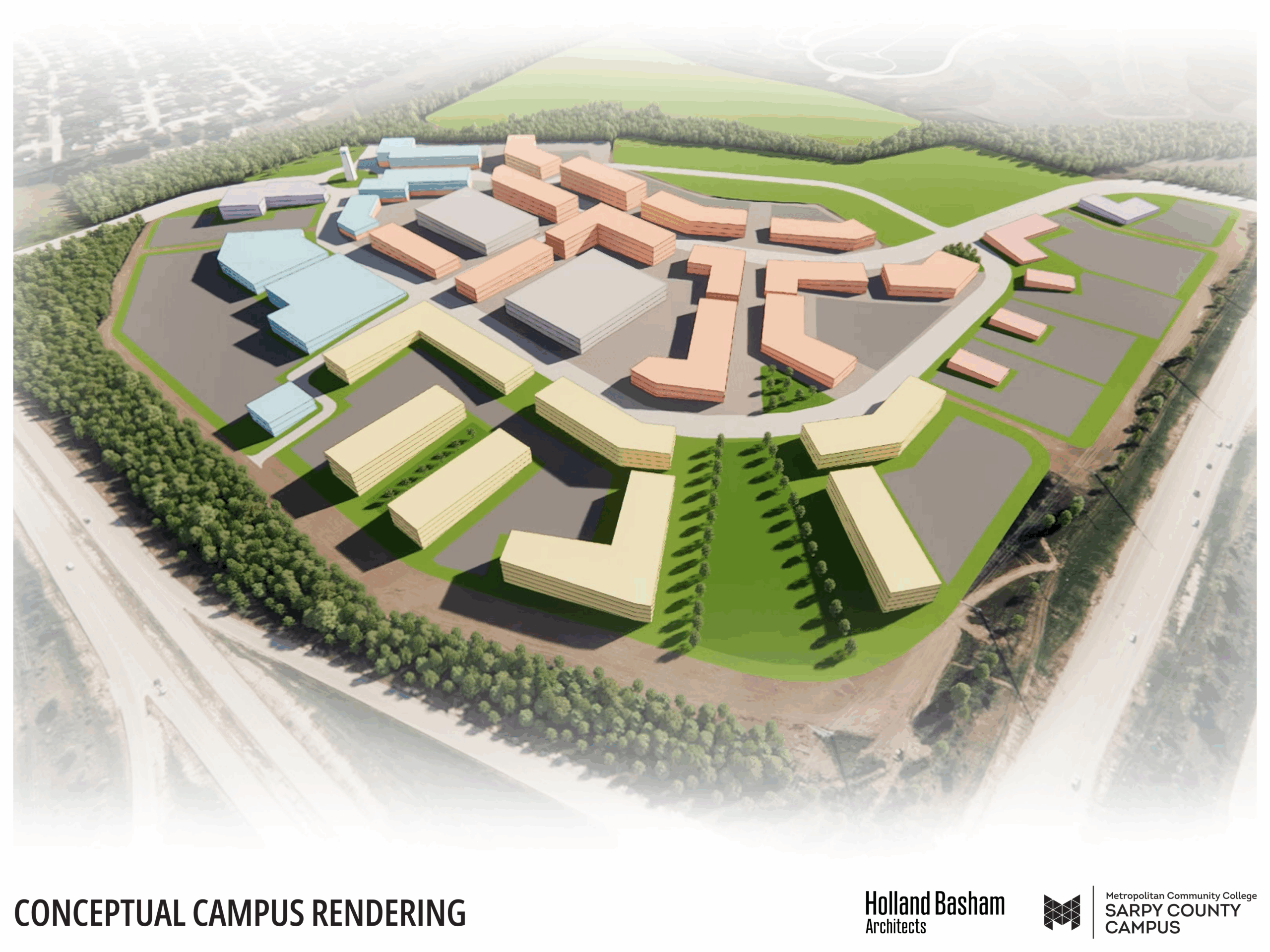Archna Sahay is an independent urban systems consultant based in Philadelphia. Currently, she is working in Milwaukee helping the local ecosystem connect, grow, and thrive.
SPN met with her during her speaking engagements at Big Omaha and the Madwaukee series in Wisconsin in August. She is a nationally recognized speaker and innovation consultant known for her expertise regarding the role of entrepreneurship in the success of urban places.
Ms. Sahay is consistently asked for her opinions about how to help urban neighborhoods and improve diversity across multiple socio-economic groupings – including race and gender. SPN is delighted that she took the time to answer our eight questions.
––
SPN: How did you get started?
AS: I failed at the one thing I thought I would do for the rest of my life––finance. Post-2008, the entire industry changed. I was just about ten years in and had to ask some tough questions of myself. If I was going to leave, I had to do it soon. Ultimately, I decided that while I loved the business, the infrastructure to succeed was not there for women of color. Thankfully one of my mentors encouraged me to apply for a role in City Government at the Department of Commerce to be a liaison for the tech community. I said no. But he persisted. Fast forward to now, and I can say it was the best decision I didn’t completely make for myself.
Life lesson: find mentors. And listen to them!
After 2.5 years in the role as Director of Entrepreneurial Investment for the City of Philadelphia, I left to work with Jeremy Nowak. He was a legend, then and now. Honestly, I didn’t realize what I was getting myself into initially, but I quickly realized. He was amazing. I think of him every day as I make my way through my current project. Working with him was very much like an apprenticeship, and I learned a great deal. He embodied all the best things about Philly. He was Philly. I miss him very much.
SPN: Is your job what you thought you would be doing when you were a child?
AS: The job is not at all what I thought I would be doing. But the impact I am making is exactly what I wanted to accomplish, what I wanted to feel. As a child what I wanted was to help people, and of course being Indian, that meant becoming a doctor. As I got older, I saw that more than access to proper healthcare, what people really needed was access to appropriate capital to finance the basic necessities of their lives (madness, but this is our system), so I majored in finance.
I loved it because I loved math and psychology and to me, finance married the two beautifully. After surviving a few market crashes, I was exhausted and quite frankly not flourishing in the industry, so I left. As mentioned in the previous question, I moved into City Government, then consulting and here we are!
SPN: What are you building right now? Why is it important to you?
AS: I am building a platform for women as founders and funders. I am building a story for Milwaukee’s tech community. And I am building a future for my family of two younger sisters and a puppy that we adopted earlier this year. For me, it’s always Family First. I have two younger sisters who are strong, fabulous and brilliant. I want to make sure they have every advantage available to them to make the choices best suited for them. In order to do that, I hope to set an example as I move my way through life.
What does that mean? Helping them see that women can have it all. Define it and then go after it. I started a group back in 2014 for women in Philly called Female Founders Network. My middle sister came to the first event in North Philly. At the time it was a way for me to organize women in the city. Looking back now, I see that it was the beginning of a much larger conversation. I supported it for a year and when I moved into City Government, I failed to give it the attention it needed. I can say with every certainty that we still need organizations that convene women founders and funders. I hope to pick this work back up soon.
Currently I am in Milwaukee for a short-term assignment learning about the local tech ecosystem and developing strategies to help them scale nationally, and in my perfect world, globally. MKE is interesting because of the many similarities it shares with Philly, from the diversity to the social challenges. Key differences being that Philly does not have a high concentration of Fortune 500s like Milwaukee and Milwaukee has no term limits on their mayor like we do.
My vision for MKE is to see it positioned as a living laboratory for urban tech. Milwaukee can solve for everything that ails a modern urban environment. (It’s already ahead of Philly when it comes to trash––trash cans on every corner! Streets are clean! Genius!) So if you want to work on clean water, poverty, public school education, etc. come to Milwaukee. The community wants your ideas. MKE is perfectly situated in the middle of the country/continent, has enough density to test out ideas, and is small enough for you to pivot quickly. Milwaukee is a beautiful city, clean (so many trash cans!), has a gorgeous lakefront, and a generous cultural scene that rivals Philly.
The Milwaukee work is important to me because cities like Milwaukee built much of this country’s economic infrastructure and as the economy evolves, we owe it to these communities to help and see if we can’t move the conversation along in a future direction. I am happy to be here to surface this story of MKE! Honestly, they make it easy. Milwaukee is beautiful!
SPN: What is your favorite thing that you have ever built? Why was it your favorite?
AS: When I was in corporate, we would frequently take these personality tests and career assessment quizzes. One of the questions that always came up was to think back to a time when you were really happy with something you were working on as a means to assess which part of management you might move into in the future. For me, it always went back to college and building the South Asian community on campus.
I went to Virginia Tech for undergraduate studies in Finance. There was a South Asian organization on campus that organized great events, but at the time was small. My sophomore year they held elections, asked who wanted to be president of the organization, and I raised my hand. Within two years my team and I turned the group into a cultural beacon for the South Asian community on and off campus by holding annual cultural festivals that served as a central gathering point for the community every year going forward. It is my favorite project because it was my first time in a leadership role doing community work, it evolved into a major organization on campus at Virginia Tech, and, most importantly, it continues to exist giving back to the local community in Blacksburg. Go Hokies!
SPN: If you could improve one thing about your job or the place that you live, what would the change be?
AS: Let’s focus on the place I live and love: Philadelphia. If I could improve one thing, it would absolutely be the trash situation in Philadelphia. It is a mess, literally and figuratively. Philly is amazing. The food scene, art scene, the culture and history, the people, the best fans in the world! SUPERBOWL CHAMPS! GRITTY!
But first impressions matter. When someone new arrives in Philly, the first thing they are greeted with is our trash. There is a certain amount of fatigue as well for the citizens who have been in Philly a long time. The city will continue growing which means the trash situation will continue getting worse if it isn’t resolved immediately. We fought tooth and nail to pass the sugar tax and here we are, talking about trash. Put trash cans on every corner! I mean, it’s a no brainer right? 3D print that s••t, right?!
But here is the beautiful mess of city government, you can place 3D printed trash cans on every street corner, but WHO will pick them up and PROCESS the trash? That is where we are stuck. We wrote the constitution, launched a nation, and are one of the largest cities in the United States of America but we can’t figure out how to process trash. Madness.
SPN: Was there anything looking back that you would do differently?
AS: I would have trusted myself sooner. My professional instincts are pretty spot on, they have always been, actually. What I didn’t have early on though was the courage to match my instincts. Luckily through the years and with God’s many blessings, I have been mentored by and befriended by, extremely supportive and generous colleagues who have helped me find my voice and my courage to follow through on those instincts.
SPN: What could the SPN community do to help you succeed?
AS: Success for me as it relates to SPN is seeing communities thrive in an authentic and representative way. My ask of SPN would be to raise up more diverse voices to give them a platform to express their thoughts, insights and wisdom in VC, entrepreneurship, etc. If you continue to raise up the same voices, the community may assume that those are the only voices that are at the cutting edge of their industry, when in fact, that’s not the case at all. It’s just that those voices have access to the resources, contacts and platforms.
I agree with much of the thought content of my colleagues, who are predominantly white men and women. The only difference is, they get the platforms to expound on VC or tech because they have the networks. Build with intentionality and always question assumptions. A perfect example is the fundraising standard of having a ‘friends and family round’ for founders.
As an immigrant, there’s no way that is going to happen. Immigrant founders are likely the first ones to go to college in this country. And we know the data regarding immigrant founders. 55% of the billion-dollar startups in this country have immigrant founders. How many more could we surface if we questioned these existing assumptions?
With entrepreneurship numbers at the dismal rate they are in this country, one can’t help but wonder if it’s not because the standards we have set forth are no longer effective or relevant, i.e., my earlier comment regarding infrastructures for success. We have to build new models if we wish to remain competitive as communities, as cities and as a nation.
SPN: If you could ask these questions to anyone, who would it be?
AS: Legislative bodies of every city government in this country. Philadelphia is the largest poorest city in the United States, which is the richest country in the world. Quite honestly, I am less concerned with the 26 percent poverty rate of our adults…more concerned with the 40 percent poverty rate of our children, which you will rarely hear about.
They are children. Children.
We have a responsibility to them as adults. These questions will hopefully lead to a sense of humanity in the adults that vote for and allow for persistent poverty in their districts, especially questions 5 and 6!





